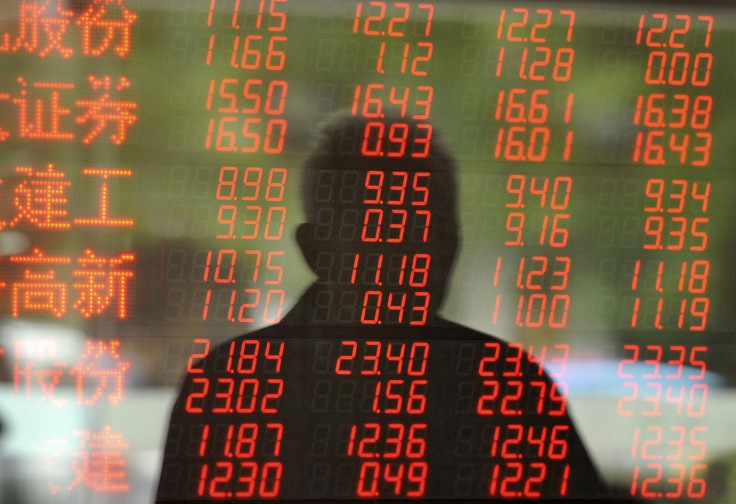Asia Mixed, European Equities Drop As Investors Wait And Watch

Asian markets were mixed Tuesday, while European equities traded mostly lower as renewed fears about the global economy pulled investors away from high-yielding, risky assets. Also weighing on investor sentiments were comments by a top U.S. Federal Reserve official Monday, suggesting that a rate hike was likely “in the near future.”
While Chinese equities rose on hopes that Beijing will ease monetary policy to address slowing growth, markets in Hong Kong were dragged down, largely due to a drop in oil prices. The Shanghai Composite Index closed up 1.1 percent, while the Hang Seng ended the day down 0.4 percent.
In Europe, the pan-European STOXX 600 fell 0.7 percent -- down from a two-month high -- while London’s FTSE 100 dropped 0.4 percent. Germany’s DAX was down 0.56 percent, while France’s CAC 40 fell 0.9 percent. Energy and mining shares also dragged down European markets Tuesday, with major energy stocks such as BP plc and Total SA also trading in the red.
U.S. stock futures also pointed to a bleak day on Wall Street, with S&P 500, Nasdaq and Dow Jones futures all down 0.3 percent.
Elsewhere in Asia, markets were mostly mixed. India’s S&P BSE Sensex closed down 0.2 percent after fluctuating between marginal gains and losses through the day, while Japan’s Nikkei 225 and South Korea’s Kospi Composite Index both closed up 0.4 percent.
“Markets are mixed because investors are broadly still uncertain about how the Chinese government is going to react in the fourth quarter, while some investors are anticipating more easing coming out,” Bernard Aw, a market strategist at brokerage IG, reportedly said. "There are two sides of the coin in China."
In Australia, however, minutes of a central bank board meeting -- which indicated that it was in no hurry to ease interest rates -- pulled markets down. The S&P ASX 200 declined 0.65 percent, led by energy and resources stocks, which fell as commodity prices reacted to weak Chinese data.
“They [traders] are waiting for things to happen, and then reacting as best they can,” Chris Conway, head of research at the Australian Stock Report, said. “Until the macro storm clouds that are hanging over the market -- China, US Federal Reserve and global growth -- begin to dissipate, expect more of the same.”
On Monday, John Williams, president of the Federal Reserve Bank of San Francisco, told Bloomberg in an interview that he believed that the "economy is still on a good trajectory," and that he expected inflation and growth to stabilize, and allow policy makers to make a decision on interest rates soon.
© Copyright IBTimes 2025. All rights reserved.




















